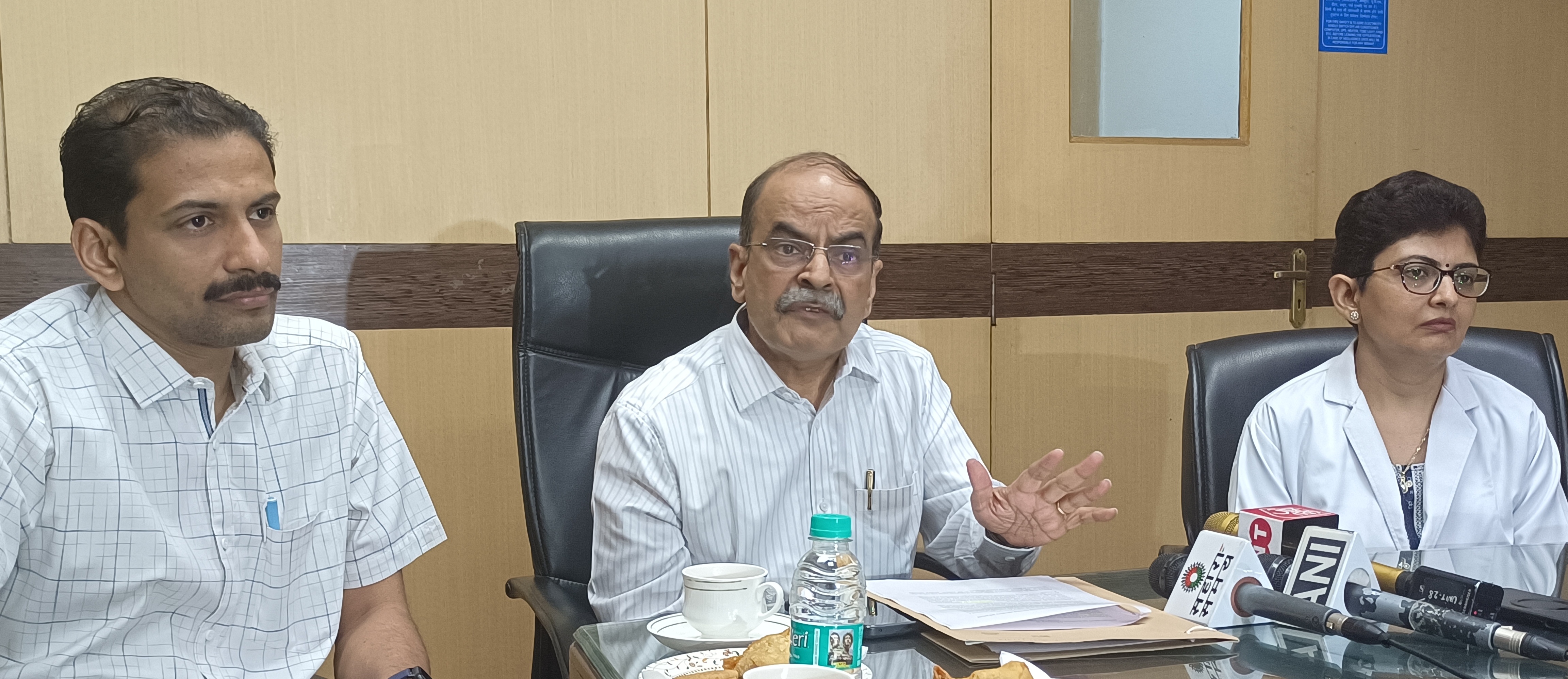
AIIMS Puts Patients First: Commitment to Timely and Quality Care
The extended waiting times for radiological procedures at AIIMS, Delhi, often draw criticism, casting doubts on the healthcare system's ability to serve everyone effectively. In response, Professor Raju Sharma, Head of the Department of Radiodiagnosis and Interventional Radiology, explained to the media that their priority lies with the most critically ill patients.
He reassured the public that these patients receive prompt treatment, including timely completion of all necessary imaging tests within hours of their arrival.
Prof Sharma shed light on the pressing issue of prolonged wait times for radiological procedures and outlined the department's approach to addressing this challenge.
"When operating a hospital of this magnitude, we must establish our priorities. Our foremost concern is catering to patients arriving in emergency situations, as they are the most critically ill and require immediate attention. Imaging for these patients is expedited, often completed within hours," Prof. Sharma explained.
He further elaborated on the hierarchy of priorities within the department, stating that indoor patients, who are typically admitted due to severe illness, receive the next level of attention. Following them are outdoor patients whose treatment plans hinge on imaging, while patients with chronic conditions, such as those experiencing back pain, are considered last in terms of urgency.
Highlighting the role of artificial intelligence (AI) in the field of radiology, Prof. Sharma emphasized its contribution to expediting the interpretation of X-rays and CT scans. "AI algorithms can swiftly analyse images, distinguishing between normal and abnormal findings, and even provide insights into the underlying pathology of abnormalities," he noted.
However, he underscored the importance of radiologists in confirming diagnoses, asserting that while AI aids in speed and efficiency, it cannot replace human expertise.
Despite the challenges posed by increasing patient volumes, AIIMS has maintained round-the-clock operations for most radiological modalities since November 2022. Over the years, the department has witnessed a significant rise in the number of procedures performed, with total radiology investigations surging from 369,607 to 632,106 between 2019-20 and 2023-2024. This increase includes a rise in Ultrasound scans from 70,619 to 93,062, CT scans from 27,044 to 40,044, and MRI scans from 6,906 to 14,334.
Equipped with cutting-edge technology, such as high-resolution ultrasonography, digital mammography, CT scanners, and MRI scanners, AIIMS ensures precise diagnoses for patients. The department conducts a wide array of ultrasound, mammography, CT, and MRI-guided procedures daily, including intricate interventional radiology procedures.
Dr Deva from Department of Radiodiagnosis and Interventional Radiology The department conducts approximately 35 Clinico-Radiological meetings weekly to discuss complex cases and make informed management decisions. The consultants spend a large percentage of their time reviewing the imaging studies brought by our patients, done at other centres (over 20,000 such studies reviewed in the last one year) as our clinicians only trust in-house reporting.
Dr Smita Manchanda, from Department of Radiodiagnosis and Interventional Radiology said that AIIMS has expanded its services to new blocks and centers, such as the Surgical block and the National Center for Ageing, while deploying advanced systems like the RIS-PACS system to streamline imaging services and enhance reporting efficiency.